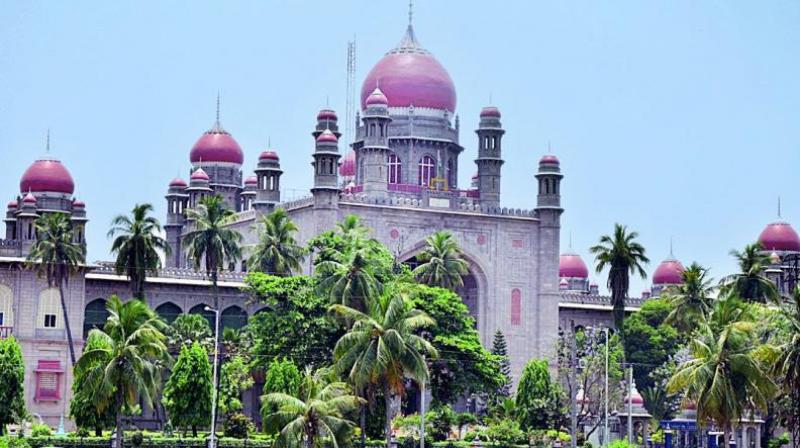TS HC pulls up revenue special tribunals for failure to hear views of litigants
High Court has pulled up revenue special tribunals for issuing orders in over 15,000 pending cases without giving the litigants a hearing

Hyderabad: The Telangana High Court has pulled up revenue special tribunals for issuing orders in over 15,000 pending cases without giving the litigants a hearing.
Taking a serious note of this, a division bench of the High Court comprising Chief Justice Hima Kohli and Justice B. Vijaysen Reddy has directed the government to hear all those cases ‘de novo’ by providing sufficient chance to the litigants to submit their contentions.
The issue related to violation of natural justice and unilateral disposal of cases by the special tribunals in a “scurry and hurry” manner, without allowing the parties or their advocates to make submissions in their cases.
The government had constituted 32 special tribunals had been constituted by the government under the Telangana Rights in Lands and Pattadar passbooks Act 2020, to dispose of the revenue and land disputes expeditiously.
The court said the objective of constituting the tribunals was laudable, but it was worrying that these tribunals having judicial capacity disposed of the cases without arranging a hearing from the parties and acted, perhaps, only on the basis of records.
The bench criticised the tribunals for issuing orders and arriving at conclusions based on revenue records. Out of 16,256 cases, orders in 4,891 cases were issued based on the records. The court said it was deeply concerned about the facts before it that litigants or their advocates were allowed to give submissions in only 10 per cent of the cases (1,850 cases out of 16,256).
“It is not appropriate passing directions in a vague manner over the properties of the citizens,” the court said, and asked the government to set aside the orders that were already passed and recommence the hearing process afresh by giving an opportunity to the parties.
The bench directed the government to give wide publicity about this court order so that concerned parties would approach the tribunals and submit their arguments in writing. If this did not happen in any case, the tribunals are free to pass orders.

